
More Americans believe that the Medicaid work requirements being pushed by the Trump administration are designed to cut government spending rather than help lift people out of poverty as Republican officials claim.
Under President Trump, the Centers for Medicare and Medicaid Services has signaled that it’s open to unprecedented policy changes, most notably requirements that many Medicaid beneficiaries either work or look for work, and Republican-led states are taking up the agency on the offer. The Trump administration could initiate the most dramatic reductions in Medicaid enrollment and spending since the program began.
According to new polling from the Kaiser Family Foundation, 41 percent of Americans believe the main reason for introducing work requirements to Medicaid is to cut spending on the program; 33 percent believe the primary motivation is to help lift people out of poverty.
Even Republican voters are divided on the question: 42 percent believe it’s about helping people escape poverty; 40 percent believe it’s about cutting government spending.
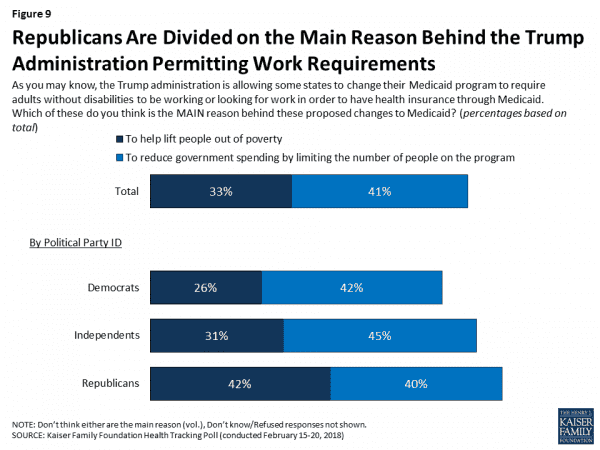

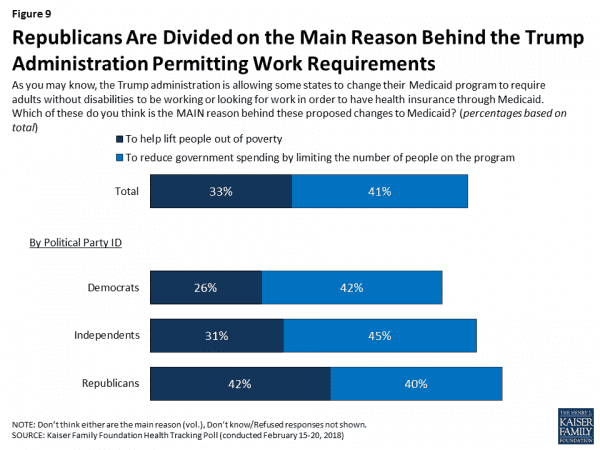
There has been an ongoing debate, as the Trump administration has sought to introduce work requirements to Medicaid for the first time, about how much the American public really supports these proposals. Support can appear very high if the question is simply about allowing states to require some Medicaid recipients to work.
But once pollsters describe the consequences of a work requirement — that poor people could lose their health insurance — support seems to drop precipitously.
This new polling from Kaiser suggests, then, the American people aren’t buying what Republicans have been selling when it comes to Medicaid work requirements. Trump officials like Seema Verma, who oversees the program, have been defending these new requirements by couching them in language about the American dream and the dignity of work.
“This policy is about helping people achieve the American dream,” she told reporters recently. “People moving off of Medicaid is a good outcome because we hope that means they don’t need the program anymore.”
But Americans see it very differently, it would seem.
The public also opposes other proposals to cut Medicaid rolls
At least 10 states have asked permission to institute a Medicaid work requirement, which critics say is contrary to the purpose of the insurance program, and they usually include other provisions that would likely drive people off the program’s rolls.
One common feature is lifetime limits: a set amount of time (five years, for example) that people are permitted to be covered by Medicaid, after which they would be kicked off the program for good.
The Kaiser polling found that Americans overwhelmingly opposed the idea: 66 percent said people should be allowed to stay on Medicaid as long as they’re eligible.
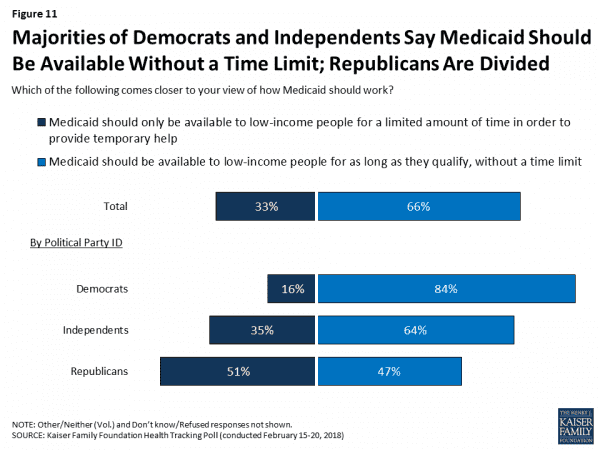

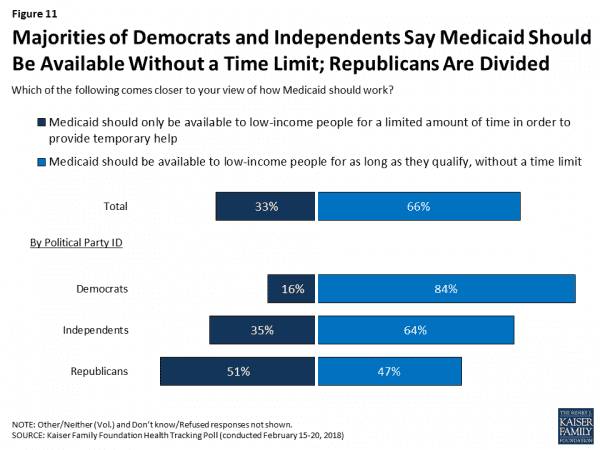
Overall, Medicaid enjoyed broad support in the Kaiser poll: 74 percent of the public said they had a favorable view of the program, and 52 percent said it was working well for the people on Medicaid versus 32 percent who said it was not.
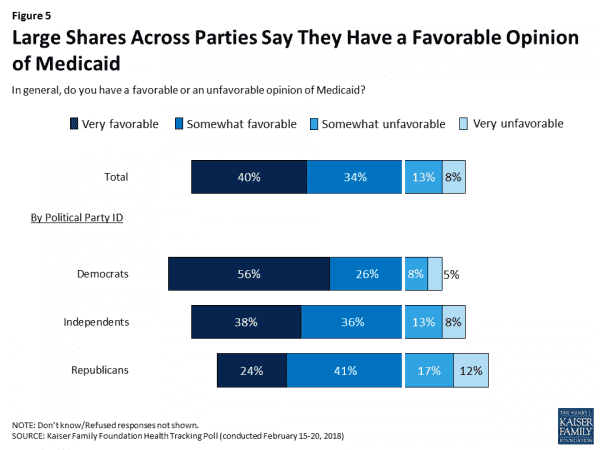

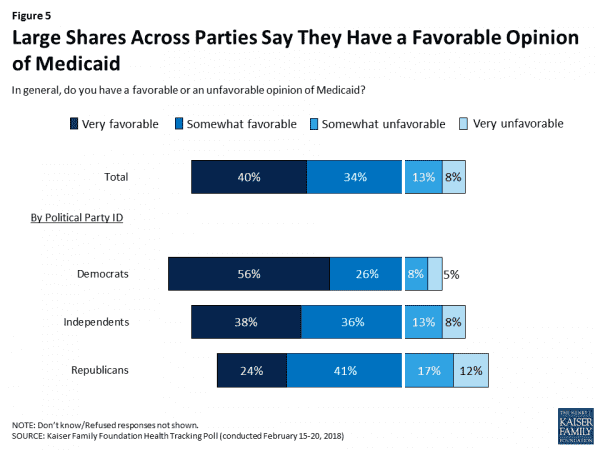
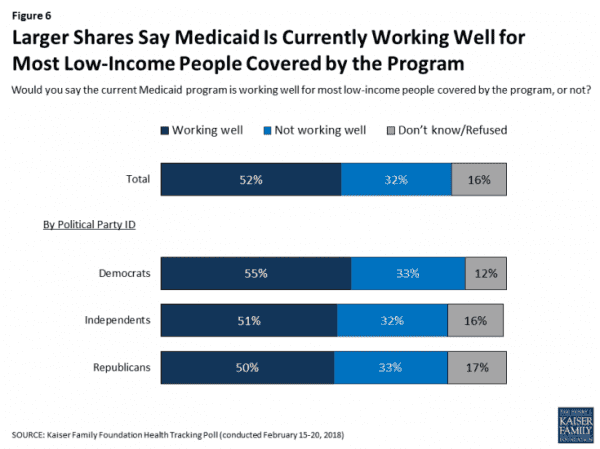

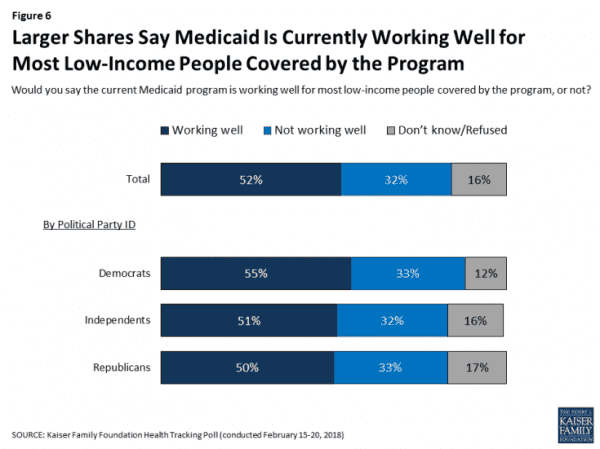
The Trump administration is pursuing some of the most dramatic changes to Medicaid in a generation, via work requirements and other restrictions, which could lead to hundreds of thousands or even millions of people losing their Medicaid coverage.
But they don’t appear to have a popular mandate to do it.
Sourse: vox.com






